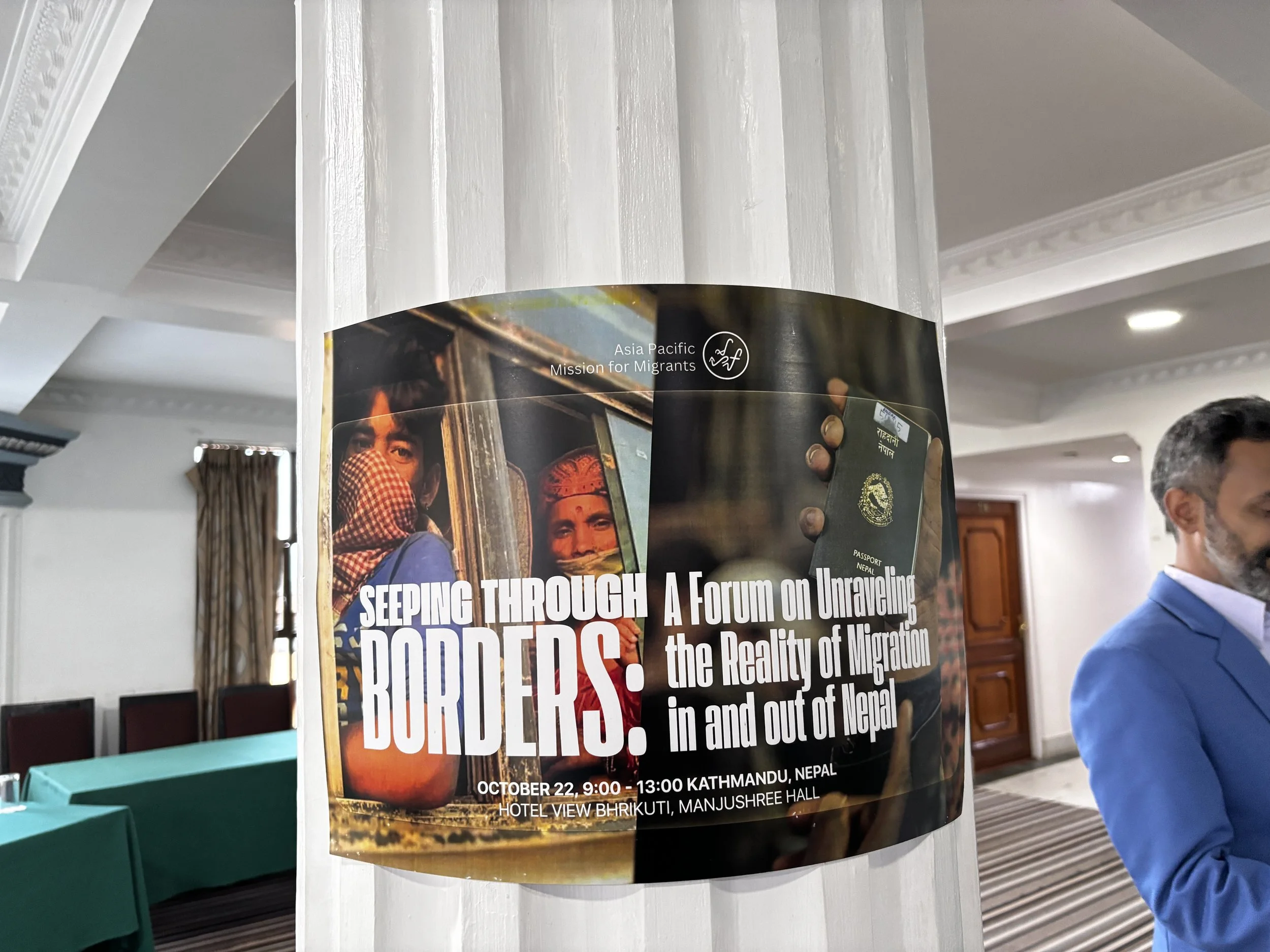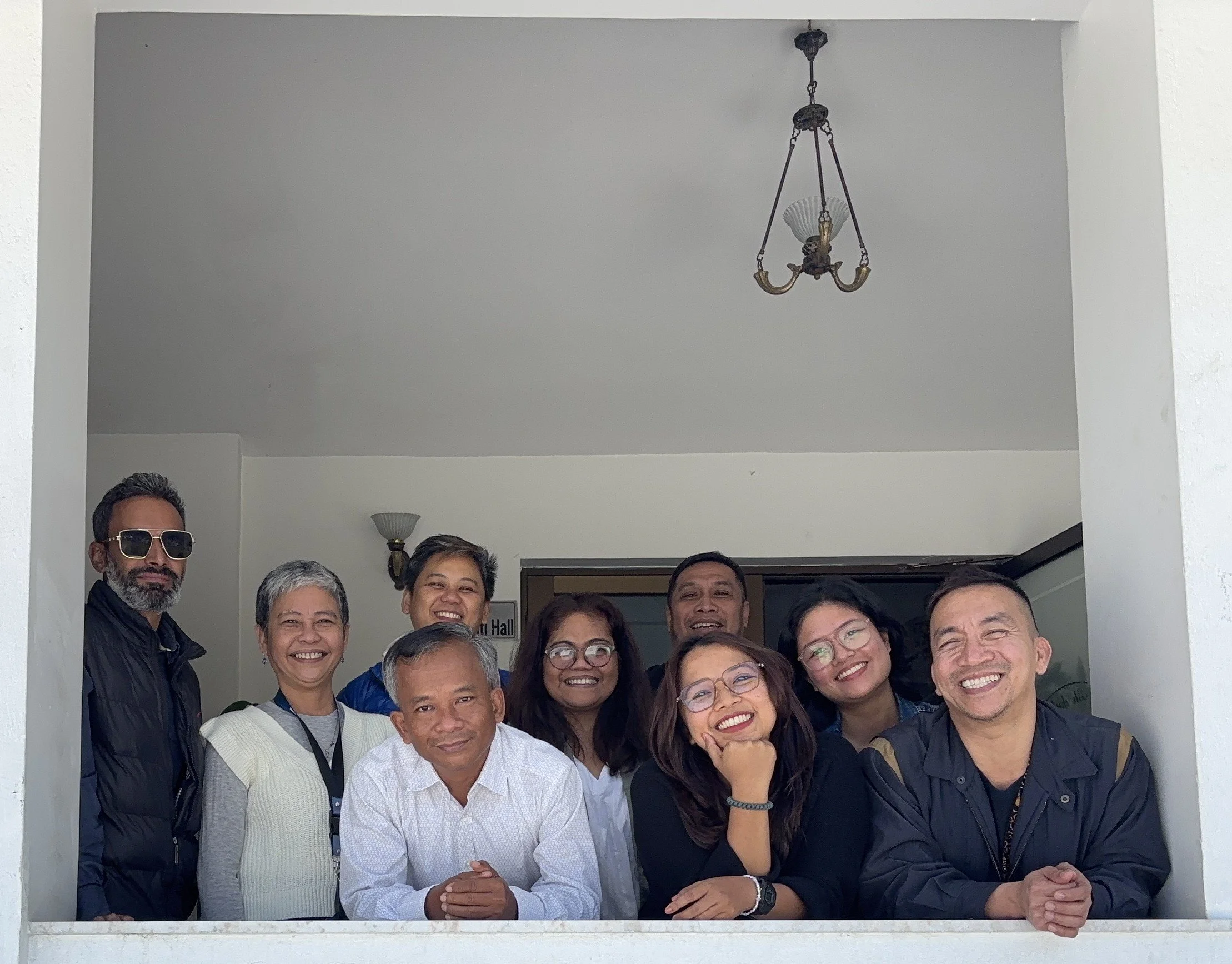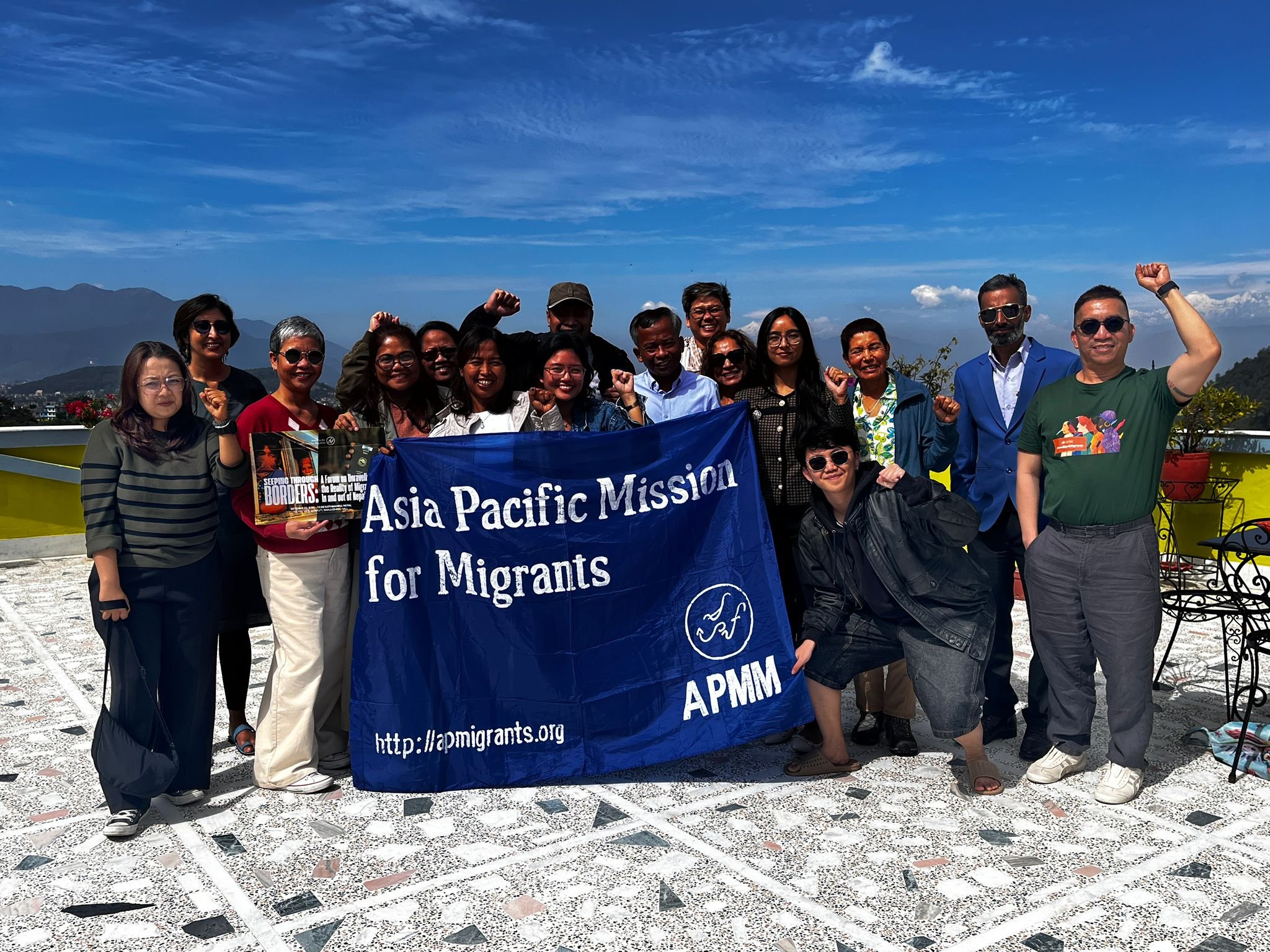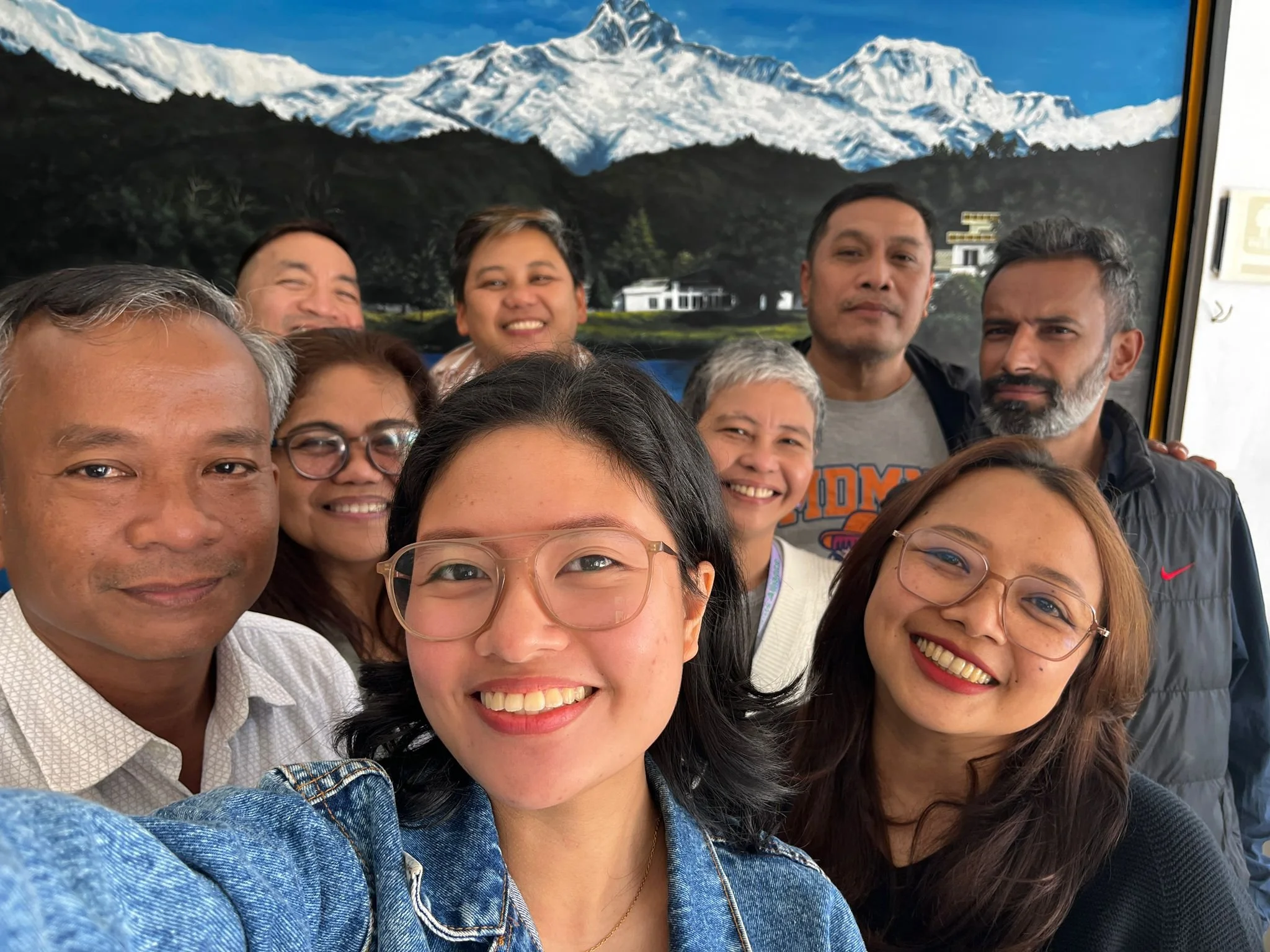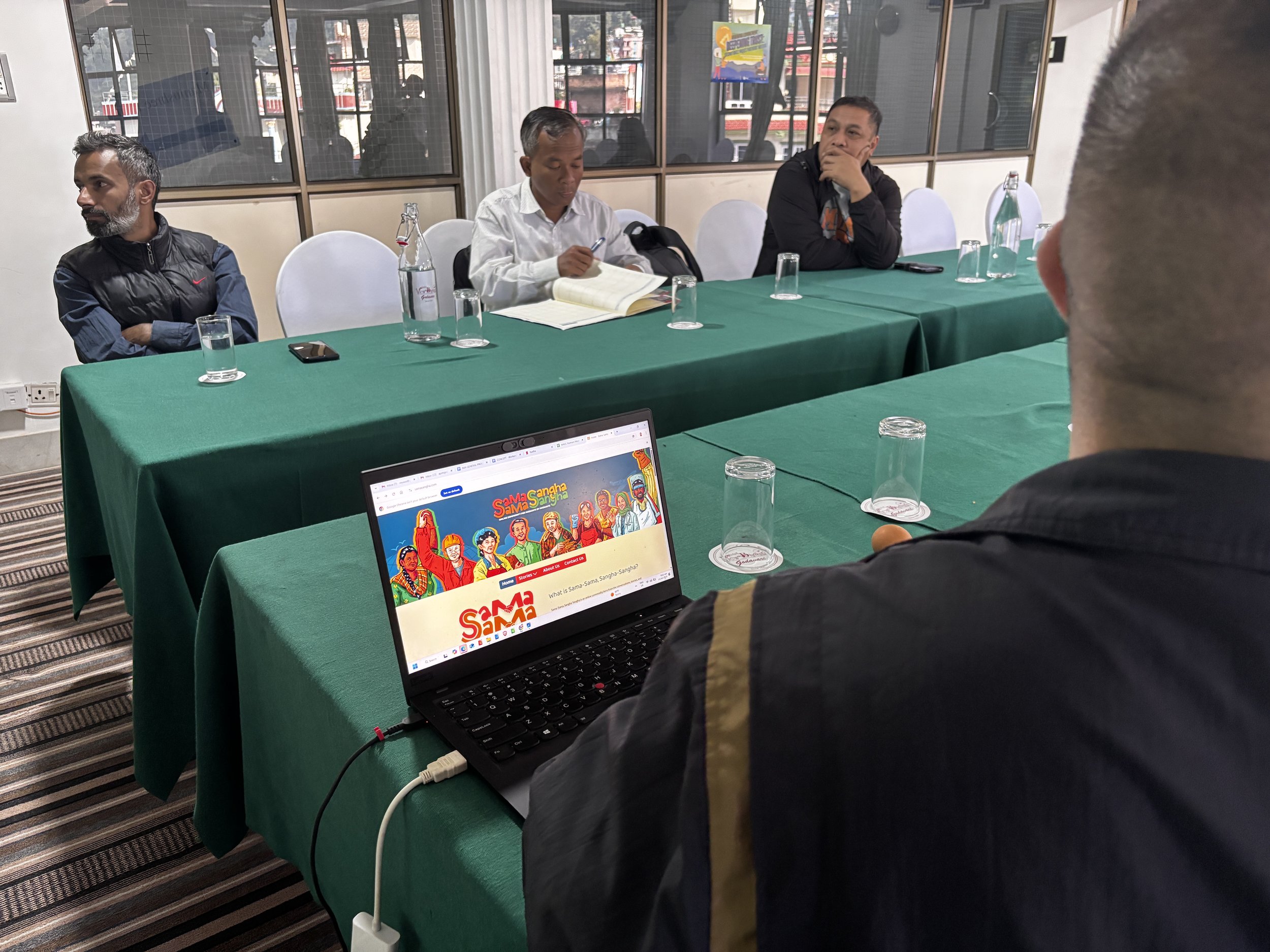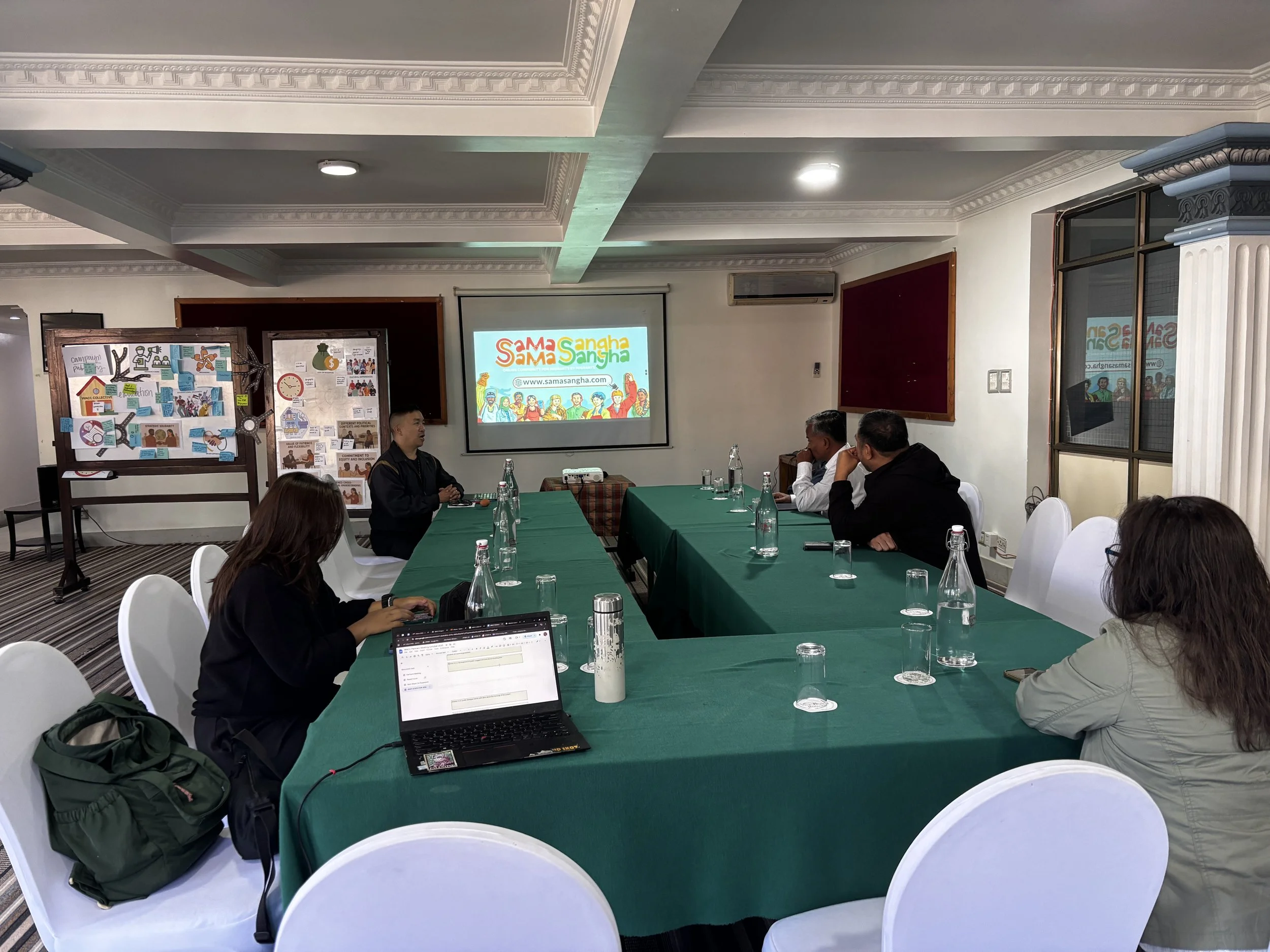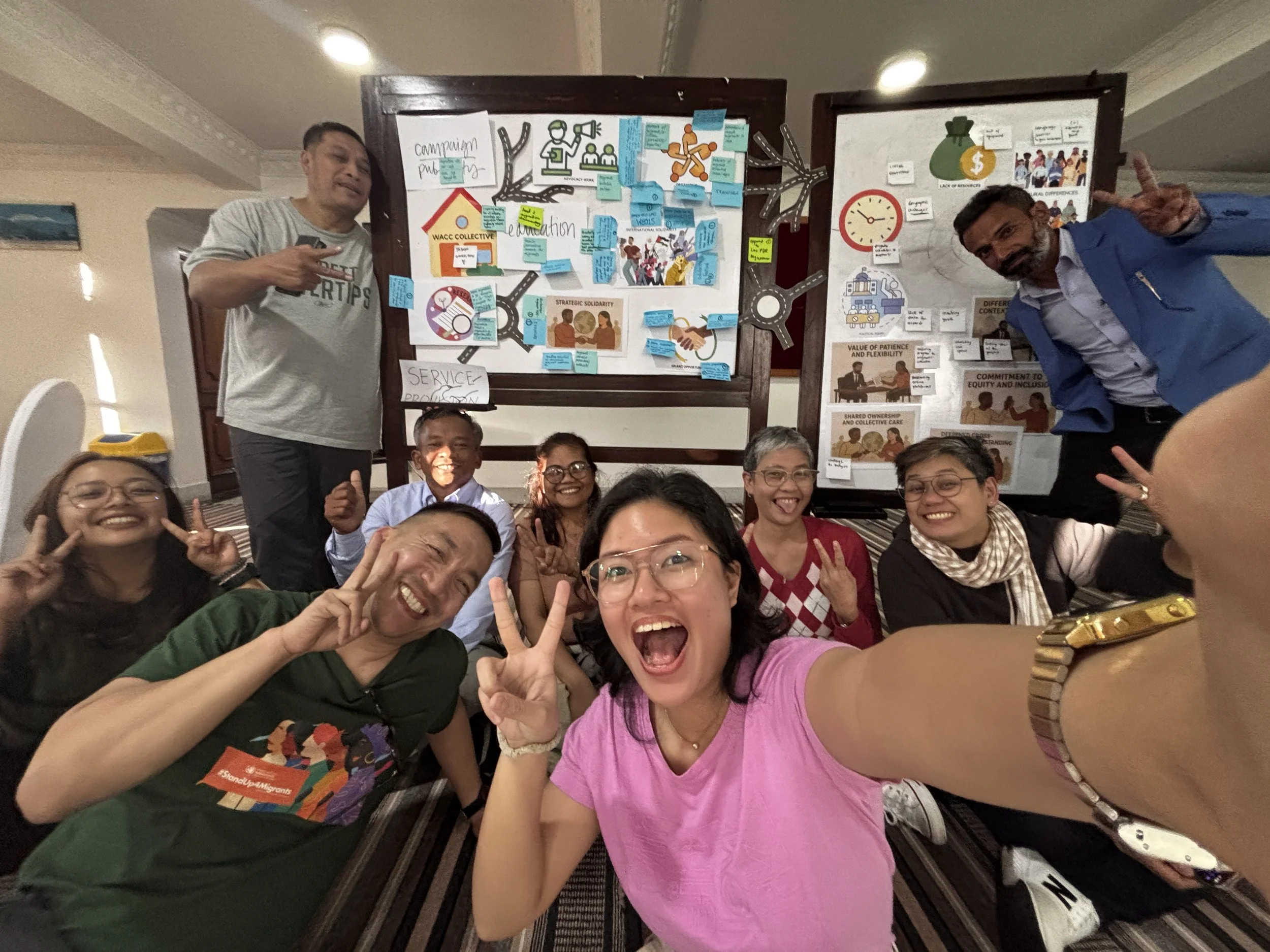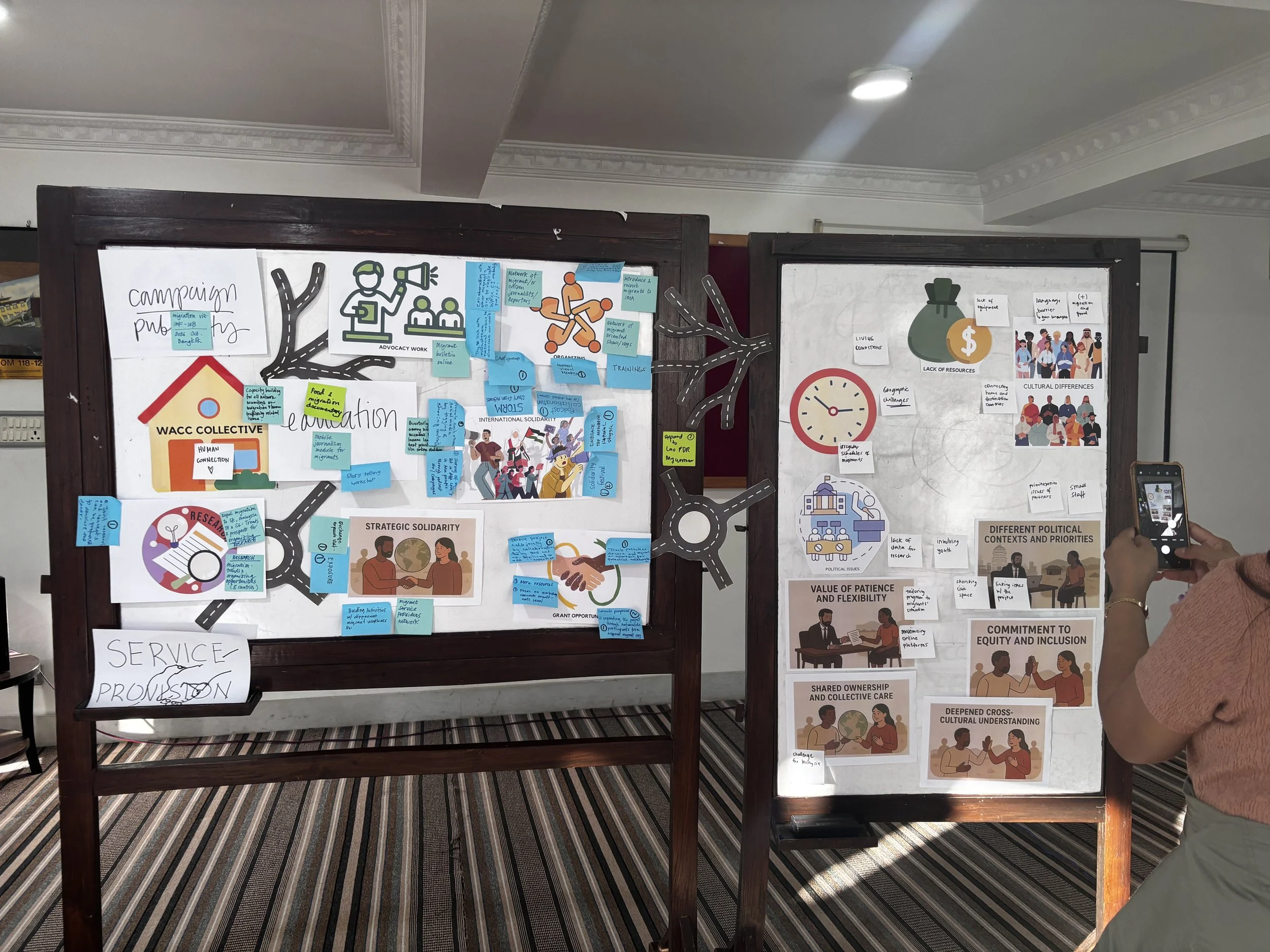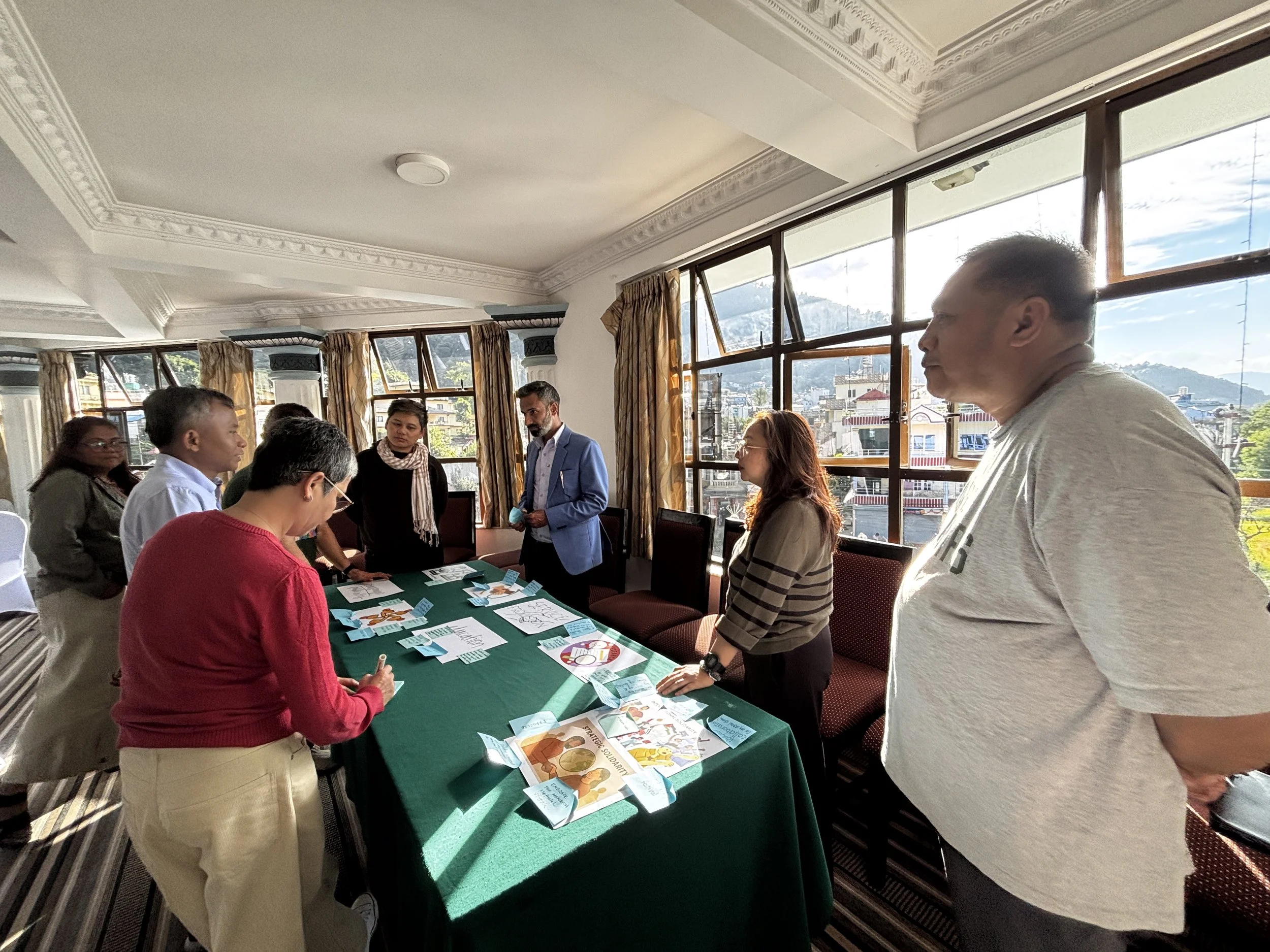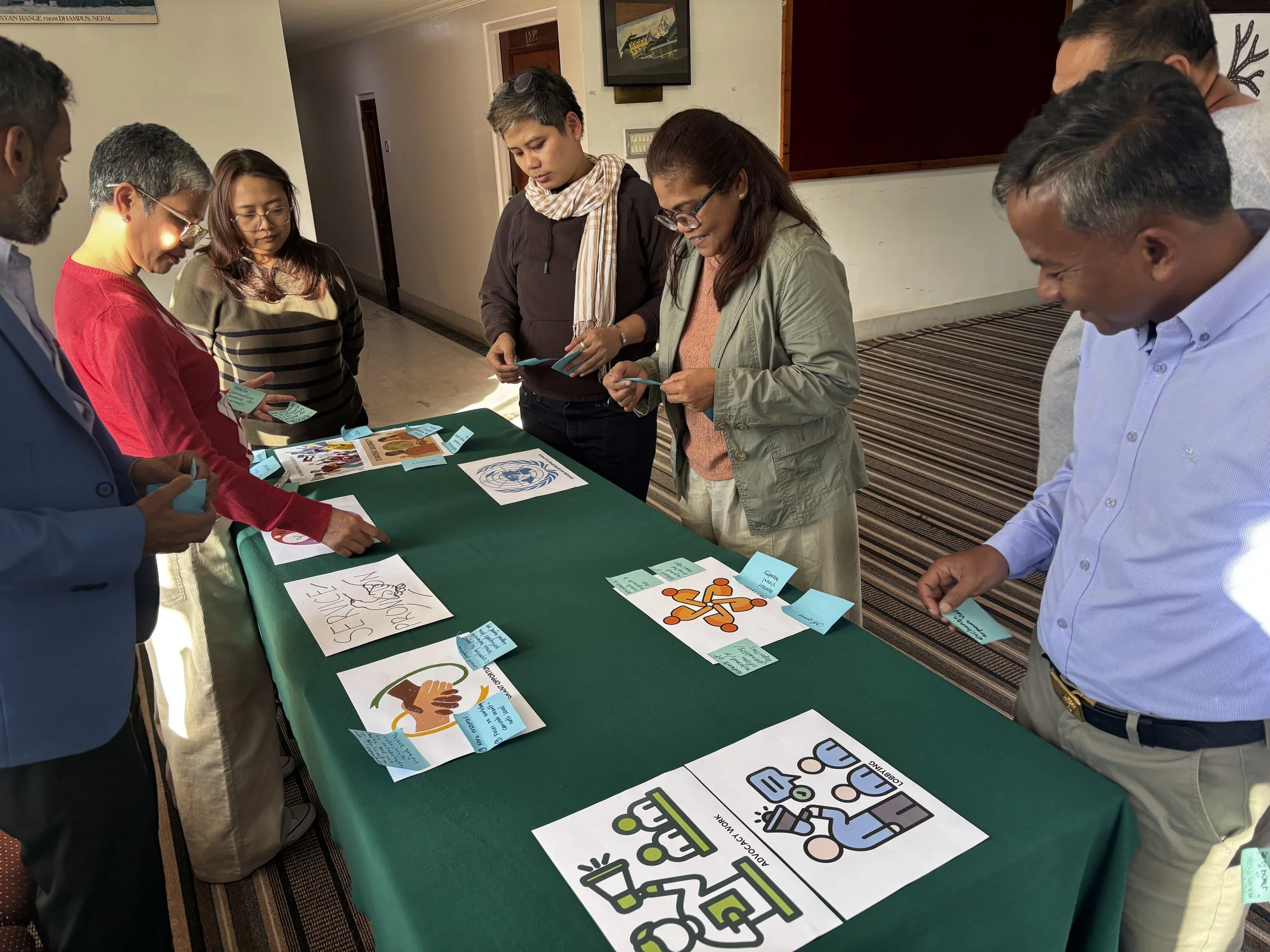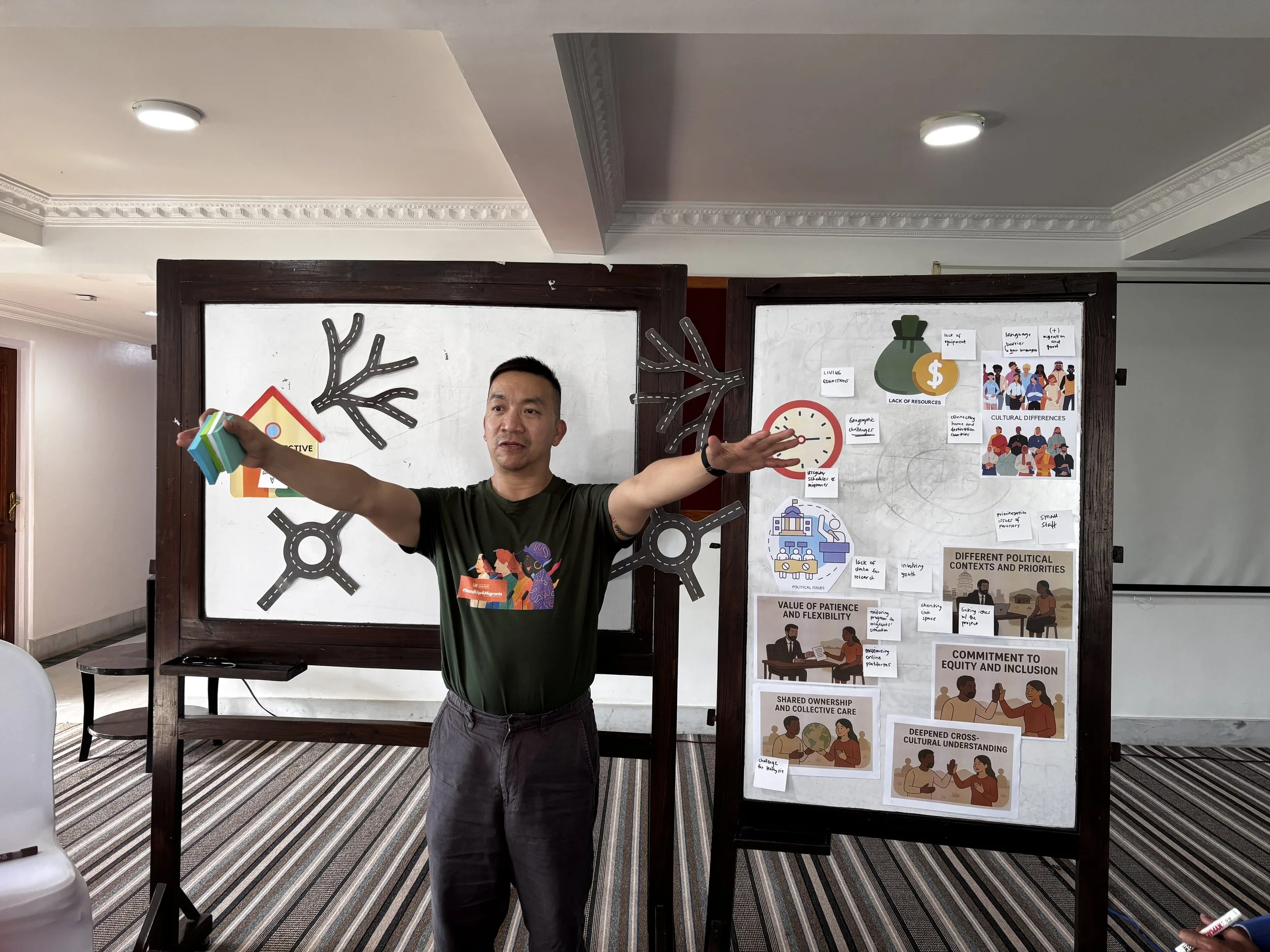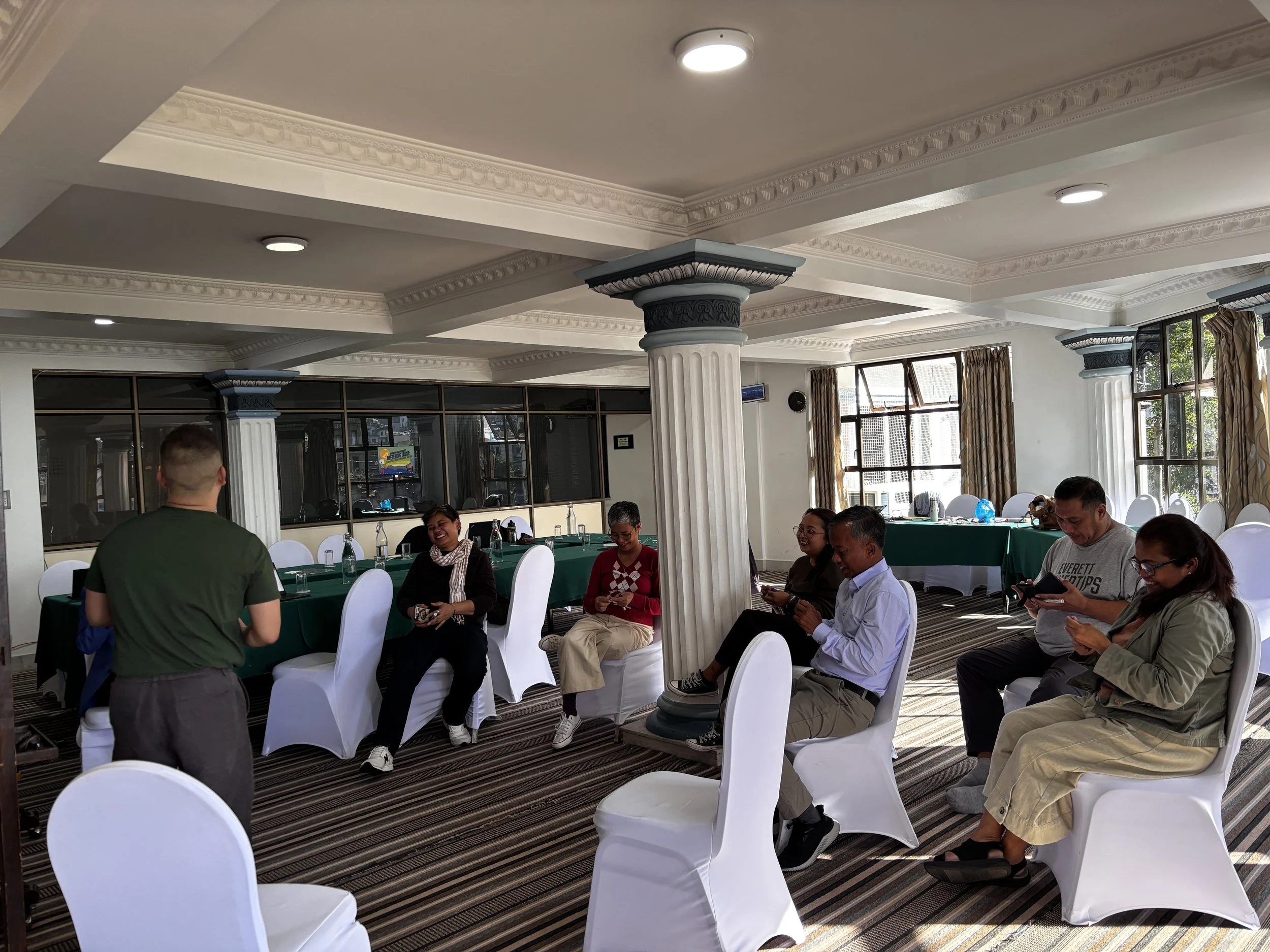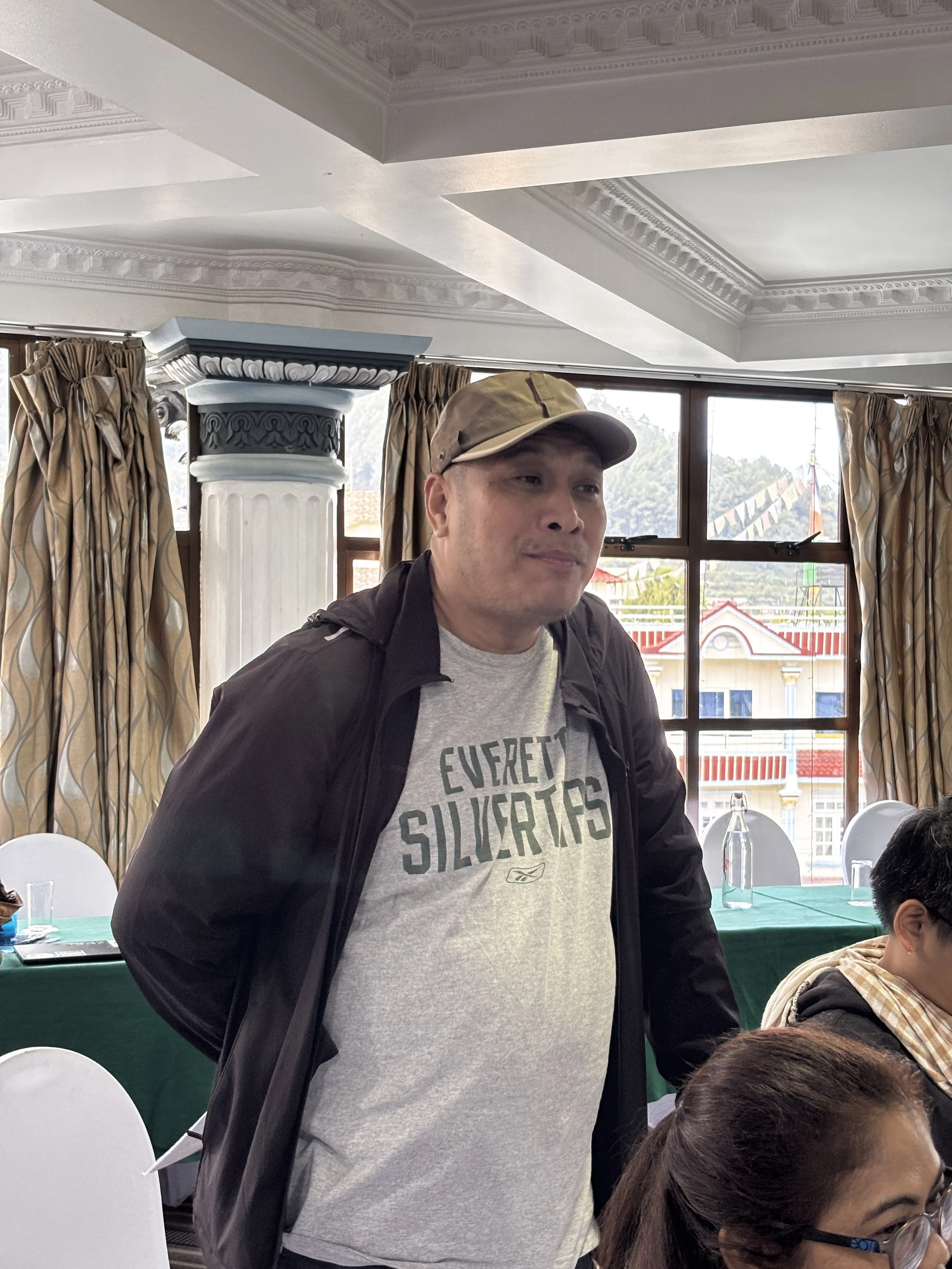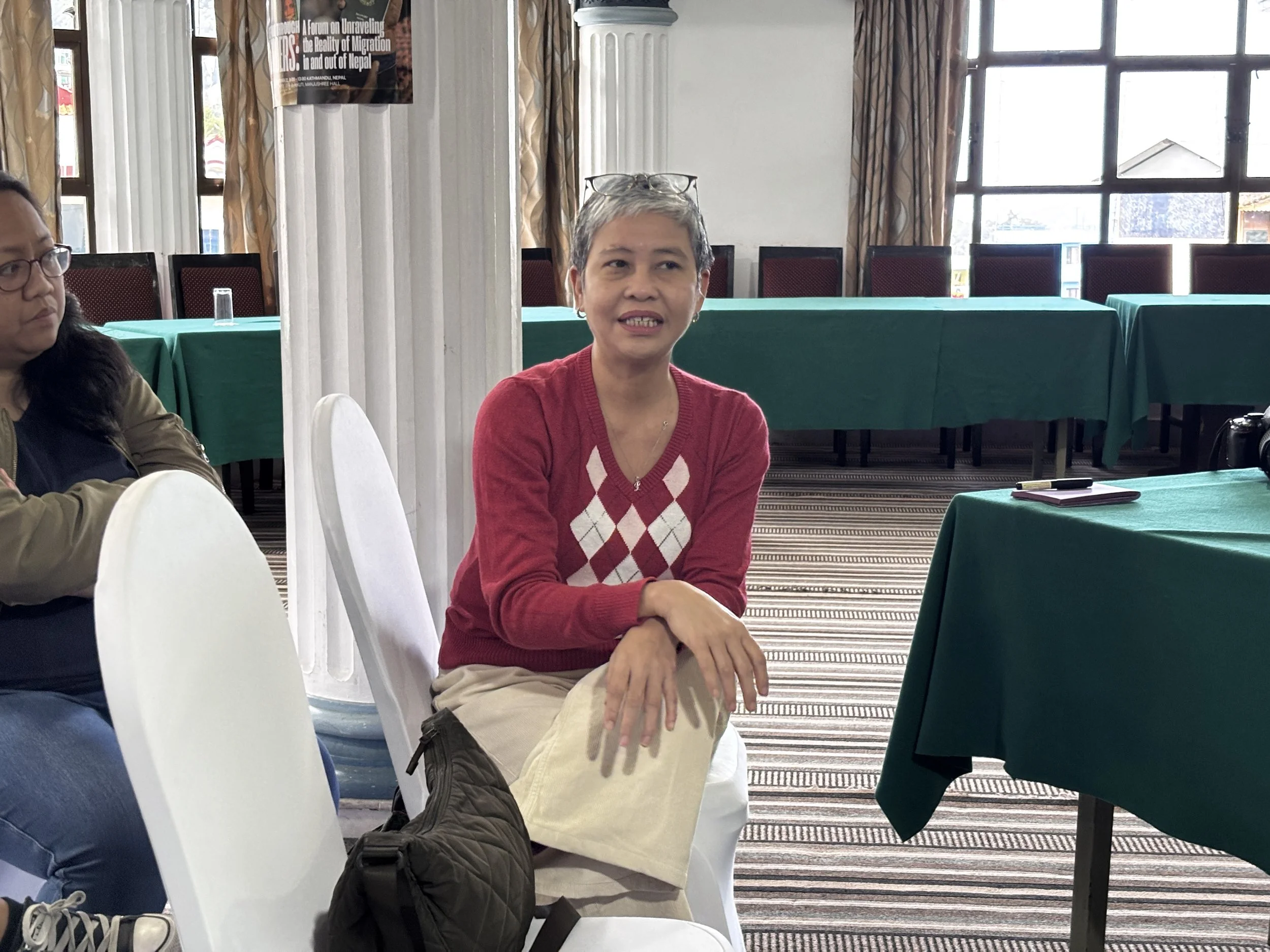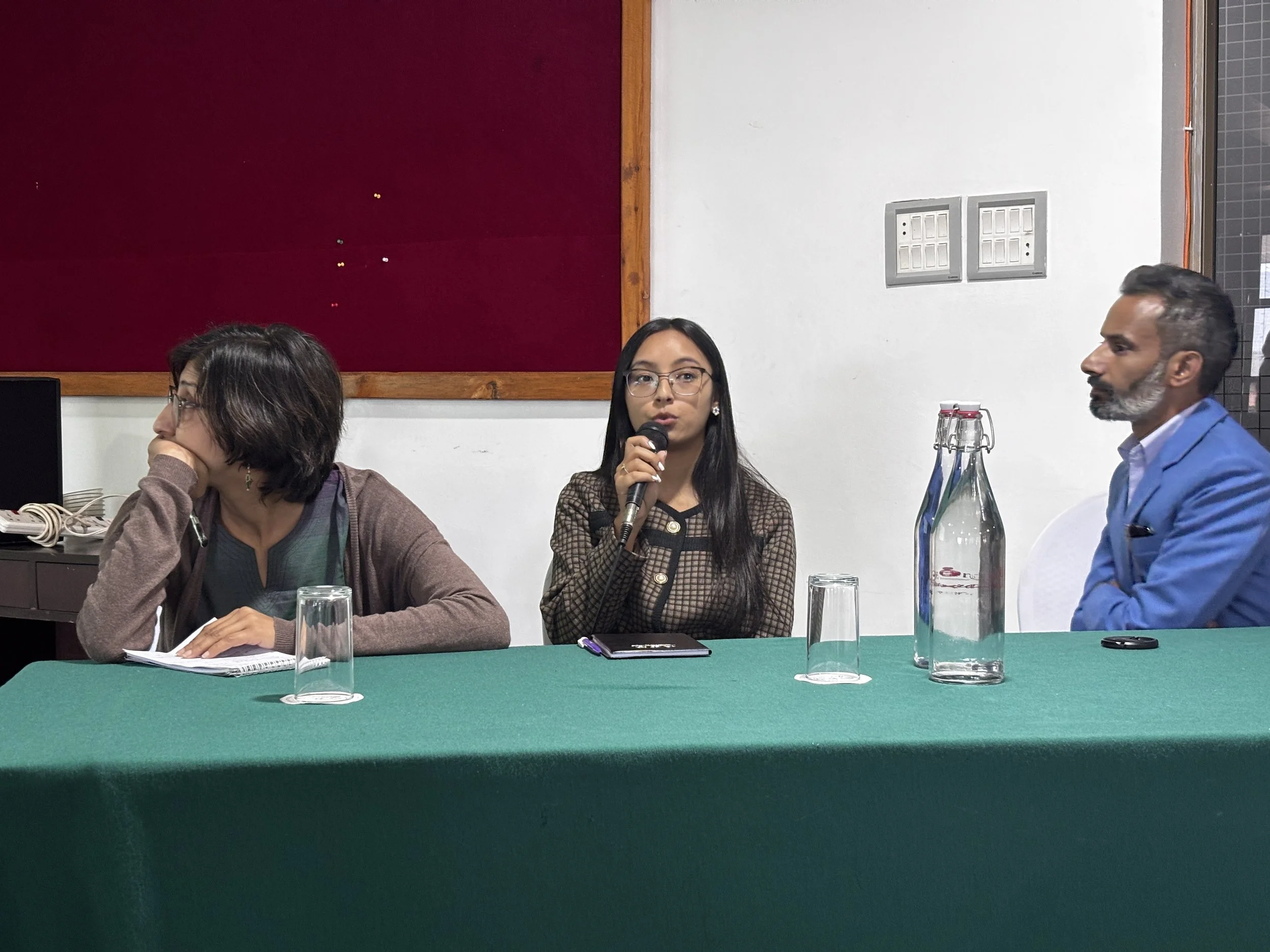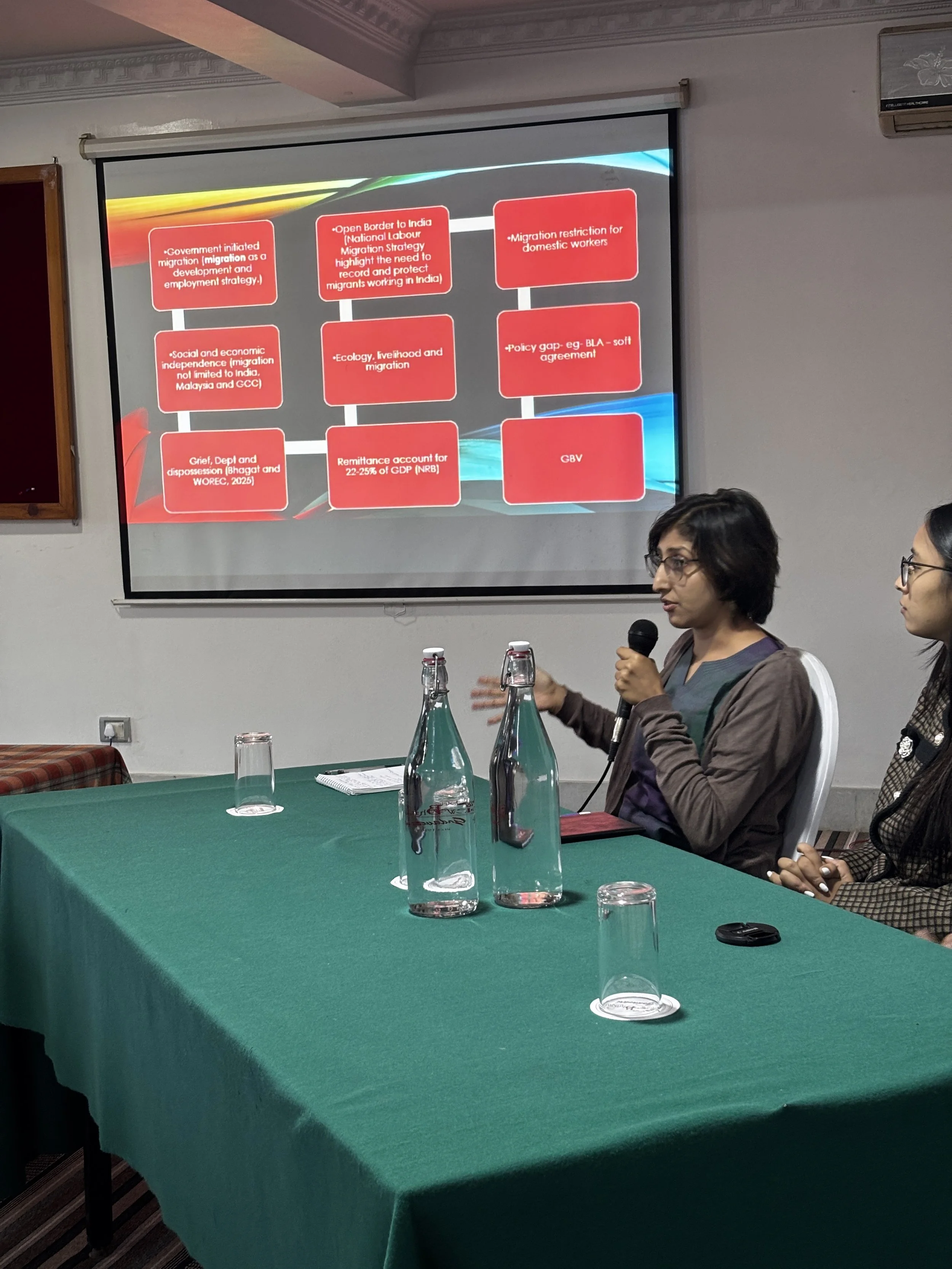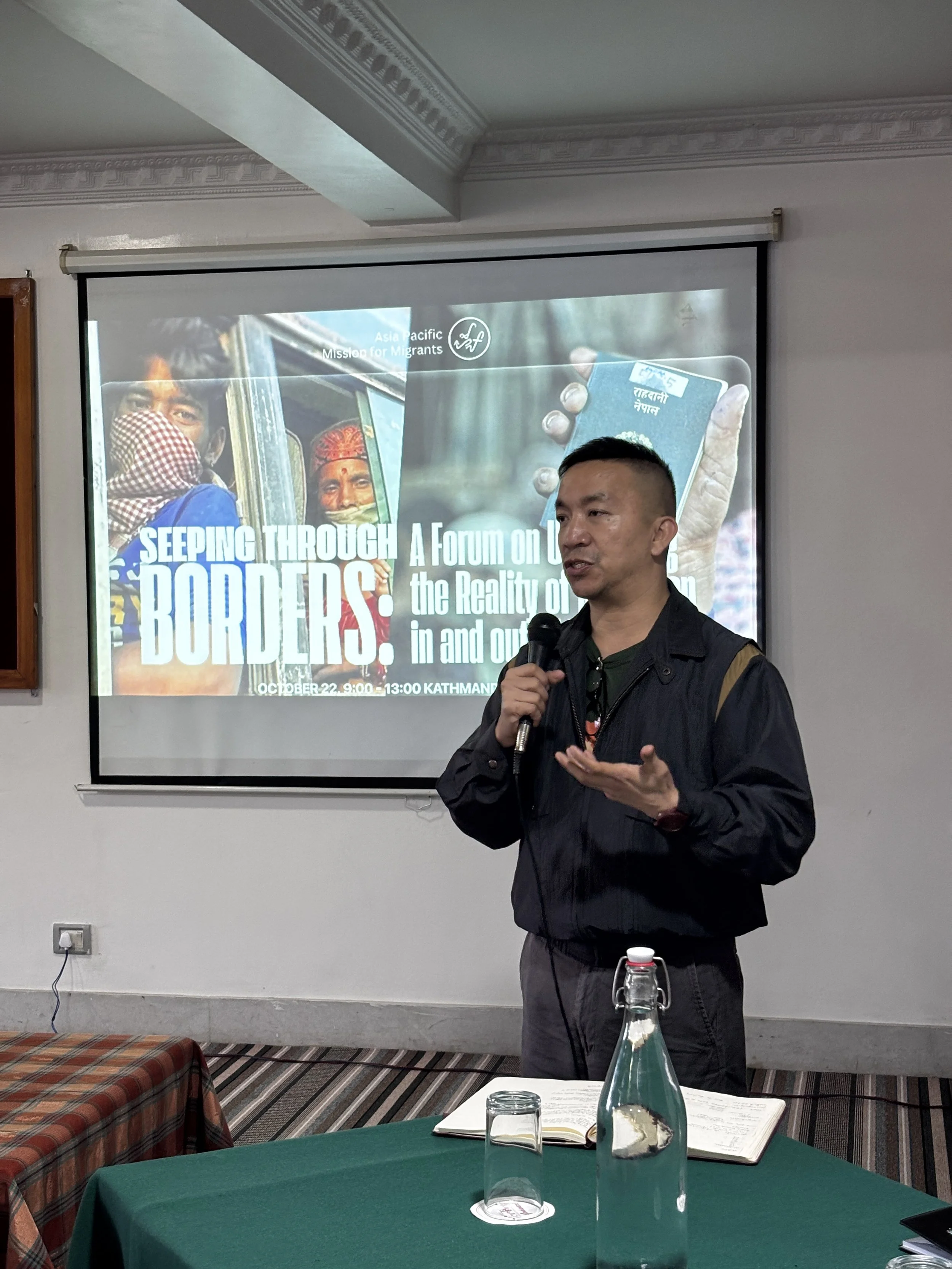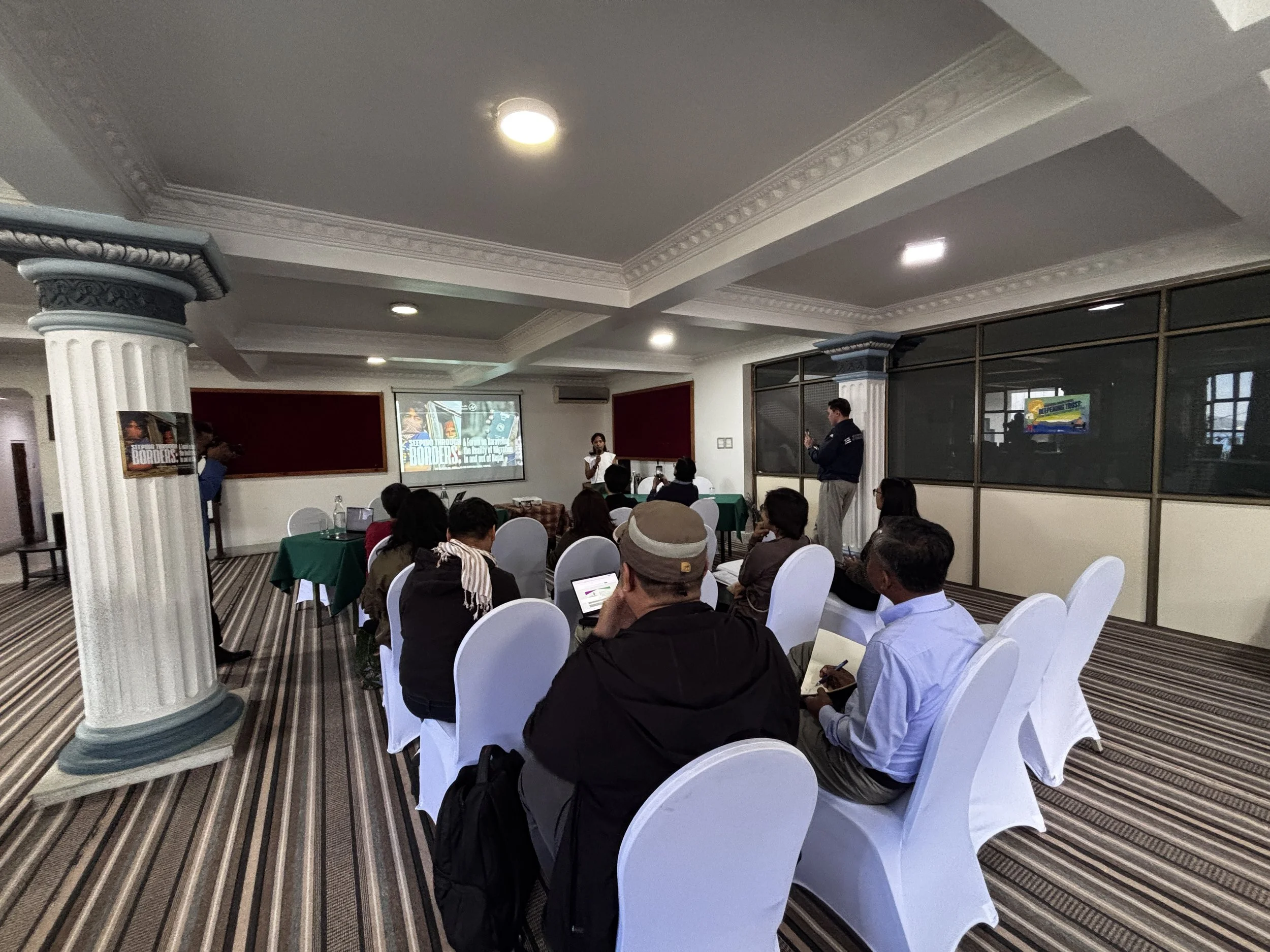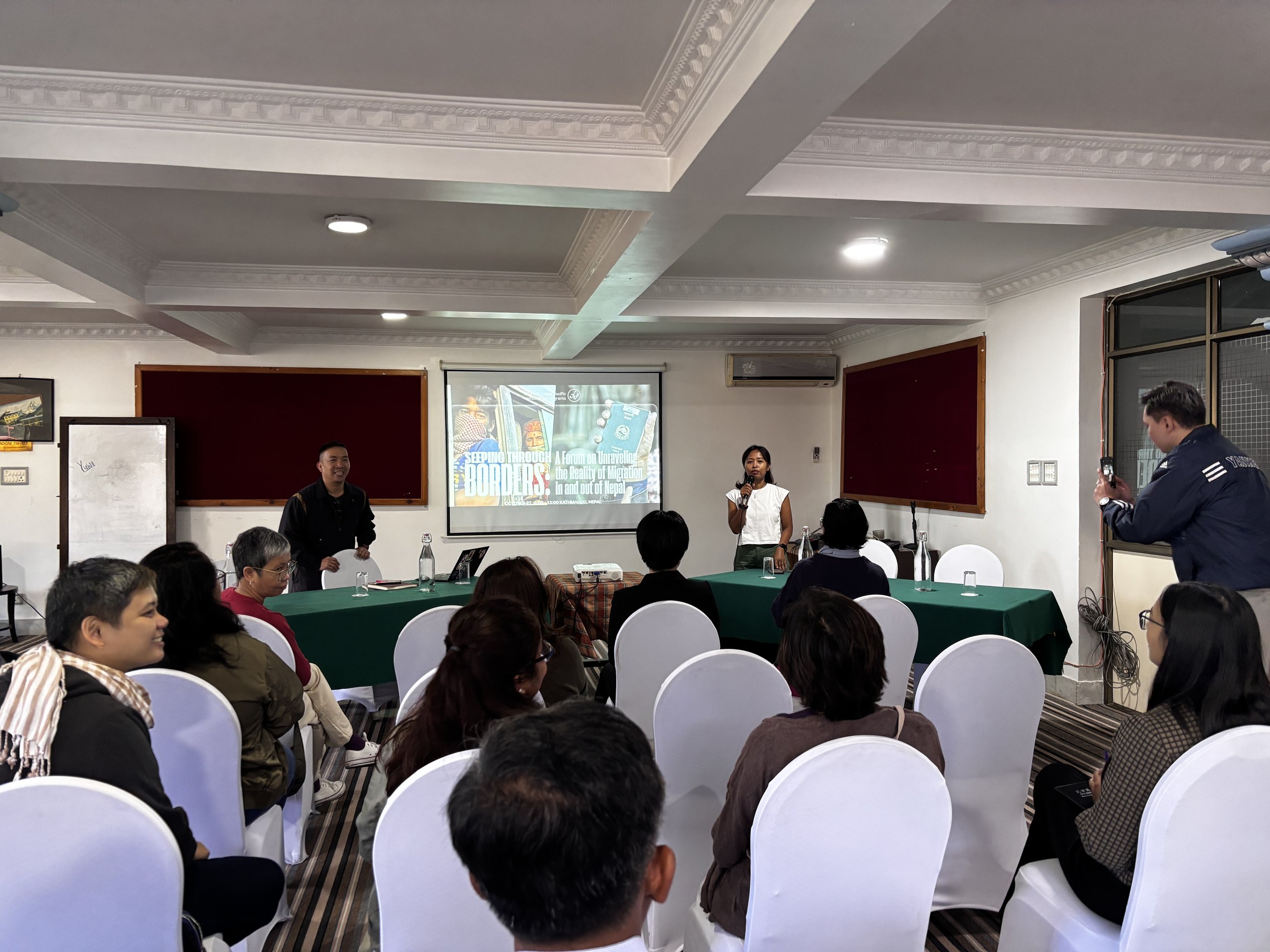Continuing Commitment to End Labor Trafficking in Asia Pacific: “You Are Not Alone” Project Partners Meeting 2025
In the sloping mountains of Kathmandu, Nepal, APMM and partners for the “You Are Not Alone” project gathered last October 22-23 to discuss lessons and challenges in implementing the project, chart new ways forward to continue the momentum of collective work, and revitalize commitment to continuously serve migrants in different countries.
With the presence of SANDIGAN Philippines, Beranda Migran, Lutheran World Federation Nepal (LWF), Lutheran Hope Cambodia Organization, Kaagapay ng Migranteng Pilipino sa Thailand (KMPT), Karamay ng Migranteng Pilipino sa Penang, Asian Migrants Coordinating Body (AMCB), and KASAMMAKO, the partners meeting was filled with discussions that center issues of migrants and the ways by which the project can serve the purpose of amplifying the voices of migrants experiencing exploitation in their home countries and overseas.
The partners meeting also foregrounded the situation of labor migration in and out of Nepal through a half-day forum on October 22 where Sunita Mainali (WOREC Nepal), Sumina Maharjan (Tarangini Foundation), and Dipendra Lamsal (LWF Nepal) took stock of the reality of forced migration in the country. On the last day of the meeting, the Sama-Sama, Sangha-Sangha website was also launched and is now ready for public access at samasangha.com.
The concerning reality of Nepali migration
In recent years, Nepal has become a hotbed for forced migration and trafficking. This is the overall analysis of invited Nepal-based migrants organizations during the half-day forum on the situation of Nepal migration.
Dipendra Lamsal of LWF provided a general overview of what is happening in the country, highlighting the glaring number of Nepalis leaving the country for better economic opportunities elsewhere. According to him, 7% of the overall population work abroad, mainly to the Gulf countries, India, and Malaysia. Many of the migrants are stuck in low-paying jobs such as seasonal work and construction work. They are also exposed to trafficking situations, especially women who are forced into sexual abuse by employers. The prevalence of trafficking is primarily brought by the open border policy of Nepal with India. Due to this, safe migration pathways and due diligence is not being practiced by border control which puts many migrants in danger. Dipendra also shared about similar issues experienced by Bhutanese refugees who are mainly seeking asylum in the Eastern part of Nepal. They experience similar issues of displacement, statelessness, and the search for dignity.
Sunita Mainali of WOREC Nepal and Sumina Maharjan of Tarangina Foundation dove deep into the experiences of Nepali migrant women. Compared to their male counterparts, they experience more gender discrimination and sexual violence in the entire duration of their migration journey. The organizations shared about the worrying patriarchal and restrictive nature of migration policies in Nepal. Due to this, many women are forced to enter unsafe migration pathways, exposing them to trafficking, exploitation, and abuse. And when they return, they confront harmful gendered stigmas, gender-based violence, lack of job opportunities, and effective public services that will help them in readjusting to life back home.
Throughout the forum, questions from the floor further deepened the insights on migration in Nepal and also opened possibilities for collaboration and organizing strategies. Collective work and proactive partnerships were identified as important next steps to amplify the voices of Nepali migrants and to seek accountability from the government who have long been touting migration as the main channel to achieve progress in the country.
“Renewing Commitment, Deepening Trust”
“Renewing Commitment, Deepening Trust” is the primary theme for the WACC project partners meeting following the forum on October 22. Through interactive activities, APMM and partners were able to identify challenges that were experienced by each organization in their implementation of the “You Are Not Alone” project this 2025. A primary challenge and also a lesson to many is how to sustain engagement of migrants in the project and beyond, especially in organizing themselves.
The partners also shared about good practices in citizen journalism. KMPT has launched a podcast series, “Kamusta Ka?” (“How are you?”) – with “Ka” embodying a fun double meaning in Tagalog and Thai – aiming to discuss the issues of Filipino teachers in Thailand. Meanwhile, LWF Nepal and SANDIGAN have sustained good relations with partner organizations and media entities from last year, further strengthening their initiatives to uplift the voices of migrants. LHCO also shared about being creative in doing their activities amidst political repression in Cambodia. Beranda Migran and KASAMMAKO have also been active in continuing their efforts to ensure that the goals of the project are being propelled in the service of the migrants in Indonesia and South Korea, respectively.
The partners meeting excellently gave way to thinking beyond the ambit of the project. While APMM and partners brainstormed about what can be done for the final year of the project, discussions around what can be done together outside its scope was also pinpointed. This ranged from broadening geographical reach, donor mapping and collaborations in submitting grant applications, cross-country exposure trips, solidarity festivals and many others. These suggestions reinvigorated the commitment of the partners to continue in the collective work of serving migrant communities wherever they may be.
At the end of the partners meeting, APMM happily launched the Sama-Sama, Sangha-Sangha website, housing fresh content from different grassroots migrants organizations in the Asia Pacific. Along with this, APMM and partners also discussed the editorial guidelines for the website which aims to ensure the quality, cultural sensitivity, and migrant-centeredness of all pieces that will be published in the website. The website can now be visited by the public at samasangha.com.
For 2026, APMM is excited to once again expand and deepen relationships with migrants in the region. The “You Are Not Alone” project will continue to prove its relevance and purpose to contribute in shaping a world where no migrant is forced to migrate away from home.
